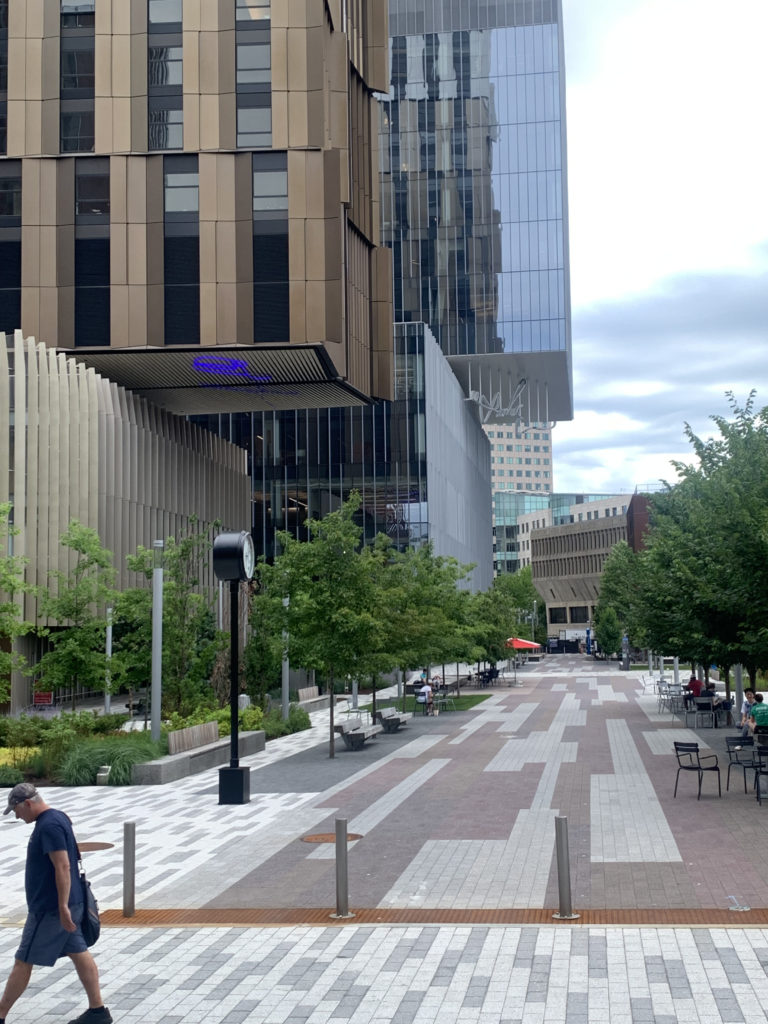
As we understand ourselves more and decide critical next steps in life, career or otherwise, we seek opportunities to help make this more apparent. Naturally, internships can provide avenues to make these realizations. Conversely, if the experience is not the best, internships can create more uncertainty or deter aspirants from pursuing their original interest/s any further. My summer internship with Massachusetts Institute of Technology’s Investment Management Company (MITIMCo) provided that avenue, making my understanding of commercial real estate (CRE) clearer and reaffirming my interests in housing and development more broadly.
Before I unpack who MITIMCo is and what they do, I think it’s essential to describe how and when I finalized my summer internship. A week or two before the end of the semester, I was still without an internship. It wasn’t from a lack of effort but a lack of connection and fit. Prof. Justin Hollander inquired about my plans, and after informing him of the nonexistent ones I had (at the moment), he recommended I look into Commercial Real Estate Success Training (CREST). They actively seek, connect with, and learn of students of color who are interested in CRE so they can match them with companies within the industry. Said differently, they help us find CRE internships for the summer. Within days, after applying and interviewing with CREST, I matched with and later interviewed with MITIMCo.

MITIMCo’s work involves managing the institute’s endowment, ensuring that operations are maintained or augmented with perpetuity. Part of this involves real estate acquisition and management, and I was fortunate to work with their Real Estate team to gain invaluable insight in that regard.
During my time, I worked on several projects. One of which was Tenant Evaluations. The overall goal of this assignment was to craft an evaluation template that could offer a comprehensive snapshot of any tenant within their portfolio. The most important information described in this report was the tenant’s financial performance, which depicts the company’s stability or risk of default. I used tools like Bloomberg, Moody’s, and different federal filings (e.g., 10-Q or 10-K forms) to amass such information.
The classes that I took in the spring were influential in me not being overwhelmed or lost in every conservation I had or meeting I attended. For example, there were a lot of dealings that involved (and directly, if not indirectly mentioned) zoning, special permits and approval conditions, going to hearings, public and political relations, capitalization rate, and so forth – all concepts that I was able to establish foundations in through Land Use Planning and Real Estate Development. There is also a fundamental grounding of Economics in real estate, as it is market driven in many respects and because supply and demand are ubiquitous across disciplines.

A final piece I want to highlight is a nod to the perspective from a CRE context, but transferable to many walks of life. Development projects are an iterative process that requires continuous refining and consideration of the financial, legal, marketplace, physical, and political. Perfecting any of those five to completion without simultaneously modifying the others is like over-tightening any one bolt of an object without evenly positioning the others – you are likely to cause more damage and additional costs than good. I implore you to take this and consider how germane it is to other areas of your life and apply it abundantly.
Joshua is so cool, intentional , and smart , I know he will be impactful in his chosen career.
Joshua is so cool, intentional , and smart , I know he will be impactful in his chosen career.
Comments are closed.